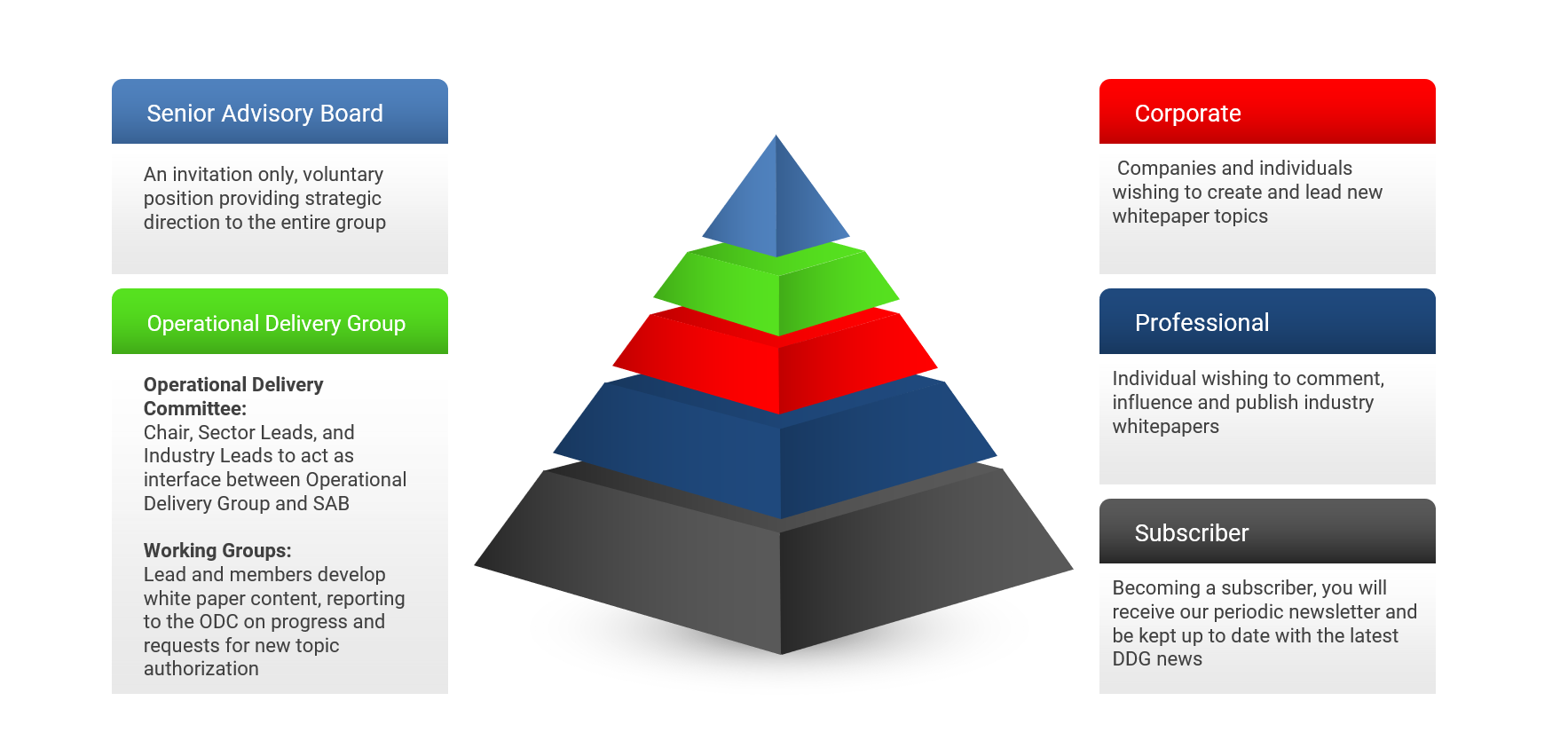The History of Drone Delivery Group
On 22 November 2018, London’s City Hall played host to a meeting of leading drone or air drone industry stakeholders who gathered to discuss how best to harness UK expertise to enable the delivery of Beyond Visual Line of Sight (BVLOS), Urban Air Mobility (UAM) flights and UAS Traffic Management (UTM) systems. The meeting signified the UK drone industry’s commitment to providing a solution to the sector’s biggest challenge of making routine commercial drone flights a reality in UK skies.
The outputs of the meeting represented an important industry contribution to government thinking on the long-awaited ‘Drone Bill’, the Air Traffic Management and Unmanned Aircraft Bill, which is now before Parliament.
Previous discussions between Drone Major Group Ltd, which convened the meeting and representatives of the Department for Transport (DfT), the Greater London Authority (GLA), British Standards Institution (BSI) and others, highlighted the need for the industry to come together to agree the best approach to ensure that the UK maintains its leading role in the drone industry’s continued development as one of the world’s most economically significant disruptive technologies.
The immediate objective of the City Hall meeting was to formally establish a Working Group tasked with producing a white paper for presentation to the DfT and the Civil Aviation Authority (CAA), designed to assist in the adoption of future guidelines, operational protocols and standards for BVLOS and UTM.
The first paper focused on the commercialisation of the drone industry because it was clear that too many developments were ‘good ideas’ from well-meaning technologists, supported by grants from the UK Government. The paper proposed that if industry drove the developments, these would be commercially viable and therefore that would point the path to a better future for the industry. HMG’s money should be used to develop the infrastructure, regulations and standards, to make the path for commercial development safe, efficient and at a pace which would keep up with the technology.
At this stage, more emphasis was being placed on ‘drones’ as per the ISO definition ‘any remotely controlled or autonomous vehicle, land, sea or air’, and that was particularly important as automation was growing and autonomy was on the horizon. Drones are systems of systems and the digital influence on their operations in all domains, was increasing rapidly. Also, drones now have the capability of operating autonomously from ship through the air into land environments and must therefore be able to communicate with other vehicles operating in those domains. That became the focus for our second paper and was a push for HMG to develop cross-domain thinking and structures at the DfT and wider. Data quality and security must be assured if we are to remain safe across all transportation means and the software used must be accessible to all cross-domain users.
Our discussion in our second paper and three associated supporting papers, was continued at a conference where we were able to share experiences from across the domains and amongst regulators, engineers, manufacturers and operators. This is where the future of the DDG lies and exactly what makes the organisation unique. We are a not-for-profit, commercially independent, cross domain group that aims to represent all elements of the drone industry: technologists, manufacturers, operators, regulators and user groups (current and potential). Importantly, that is across all domains, land sea and air (including space).
The DDG has come of age and now has a commercially independent CEO and supporting team who are ready to tackle the challenges the cross-domain drone industry faces on behalf of the membership. We welcome inputs from across the industry and stand ready to support the safe, efficient and commercially viable developments of this rapidly developing industry.
The Team

John Haffenden
With over 50 years in Aviation, starting work for a flying club, gaining a Private Pilot’s licence, moving to aircraft engineering, and then onto attending the College of Air Traffic Control (Bournemouth) qualifying as a fully licensed Air Traffic Control Officer and progressing to become Senior Air Traffic Control Officer at a UK major General Aviation Airport. During this time being heavily involved in many major events in the UK, including the British Grand Prix for over 22 years, operating the world’s busiest heliport for that event.
Moving to become Airport Manager, and responsible for major infrastructural development, including commercial building development, runway extensions and taxiway construction, along with all aspects of a busy Executive and General Aviation Airport in the South of England.
As a Board member of the UK Airport Operators Association, and Chairman of the Business and General Aviation Committee, I was invited to become part of several Civil Aviation Authority (CAA), Committees, as well as being a member of European meetings.
An Aviation Consultant providing input to many Airports in the UK, before being invited to become the Chief Executive of the Drone Delivery Group. Working very closely with Frederick Harbottle, Chairman of the Operational Delivery Committee, to deliver the Mission and Objectives of the Drone Delivery Group.

Frederick Harbottle
With almost four decades of service in the RAF as a pilot, flying instructor and standardiser, including with the USAF as Dep Chf of Standards for the 76,000 strong 15AF, senior posts followed as Chief of Current Ops running Air Defence of UK and service with the FCO in Pakistan. As directing staff at RAF Staff College and at the Joint Doctrine and Concepts Centre, responsibilities held included teaching joint and combined operations and staffing MoD’s command and battlespace concepts, and information operations. Commercial life has involved security and defence procurements in the ME and SE Asia, including composite armoured vehicles and latterly two years as Dir Ops at Drone Major Group. Currently, Chairman of the Operation Delivery Committee of the Drone Delivery Group engaged in producing white papers voicing industry concerns to government.
Not For Profit
The Drone Delivery Group is a company limited by guarantee with a strict not-for-profit governance structure.
The Drone Delivery Group
Since its formation as an ad-hoc organisation, the Drone Delivery Group has grown rapidly in size and reach with members from around the globe. More recently, at the request of its members, a not-for-profit organisation was formed to establish its formal structure and governance.

The Mission
The DDG aims to be an authoritative voice and influence for the drone industry, principally by providing guidance and advice to the UK Government on key topics affecting the drone industry.

Thought Leadership
The Drone Delivery Group comprises many leading minds in the drone industry in the UK and from around the world, providing an unprecedented opportunity to deliver thought leadership in what is an exciting emerging sector.

Industry Papers
At the heart of our purpose is the production of industry and public consultative White Papers on key topics and concerns facing the drone industry. It is through this vehicle that we aim to inform Government of our concerns, opinions and recommendations to encourage action designed to enable an industry which has such potential for the economy and for mankind.

Board Certification
The Drone Delivery Group was established to be the first global drone association which is open to members from any environment (land, maritime, air & space) and includes the business user community.


